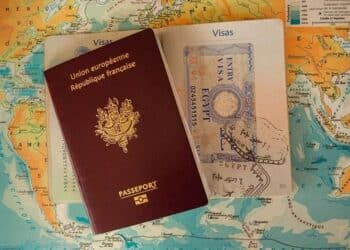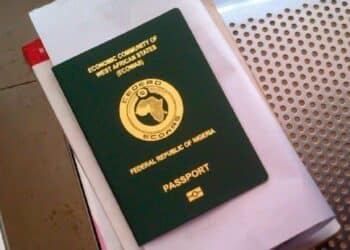President of the National Association of Nigeria Travel Agencies (NANTA), Susan Akporiaye, was among the panellists at the just concluded 2023 African Tourism Leadership Forum and Award (ATLF) held in Gaborone, Botswana. In this interview with REPORTERS AT LARGE. The Managing Director at Topaz Travel and Tours Limited emphasised, among other things, the need for the public and private tourism stakeholders in Africa to “sell Africa to Africans.” Excerpts:
In what capacity did you attend the 2023 African Tourism Leadership Award?
I attended as part of the African Leadership Alliance and as the NANTA president. The alliance was constituted at last year’s edition of the ATLF. At this forum, the public and private sector stakeholders of African tourism come together to forge a way for the building, development, and promotion of tourism in Africa.
How would you describe the impact of the ATLF on African tourism as a whole and each of the African countries that had participated?
Of course, the forum is supposed to increase the tourism revenue in African countries. One of the outcomes of the ATLF is the conclusion that we will promote our tourism by ourselves, as opposed to the former trend whereby African countries depended on or waited for the Western world to come and run their tourism. And that has not been working for some time now. That is why income generation in tourism has been going down. I am certain that each participating African country in this event would return home with a renewed and resolved mind to push their tourism more in Africa. It is a forum for both government and practitioners.
What is your perception of African tourism?
African tourism has a long way to go. Though some countries are doing very well, they still need much work to promote their products within Africa. In contrast, some designed their tourism products for Europeans, not Africans. Last year, I asked somebody about tourism in his country, and the response was, “Tourism is expensive, and Africans can’t afford it. Europeans are the ones who can afford it.” I wonder why they chose to make tourism expensive. So, I told the person they made it expensive because of the people they were targeting. For me, a lot of work needs to be done. Few countries have done it well, but they still need a lot of marketing within Africa. South Africa has taken the bull by the horns: they decided that the highest percentage of people coming to their country should be Africans. And they achieved it. The country reports that in 2019, and even post-Covid, 75 per cent of people entering South Africa were Africans. That should be the same philosophy for every African country that has grown its tourism products. The target should be, “Let’s get more Africans coming in.” South Africa is a good example to other African countries. At least we should have learnt our lesson through Covid, and that’s the take for me. So far, in all the countries that came, you can see that they are very excited and resolved to start promoting their tourism in Africa.
As NANTA President, what are your plans for Nigerian tourism based on your conclusions, information, and perceptions about this event?
Of course, I will continue promoting Nigerian tourism and travel industries as I have always done. As an individual and the national president of NANATA, I have never stopped advocating for Nigerian tourism. Although many issues affect our tourism, they are not issues that we cannot overcome. We cannot afford to sit, fold our hands, and do nothing until they are resolved.
There are some ready-made products already available from some private people. Take Lagos, for instance, where there are a lot of people operating private resorts and beaches. Lagos doesn’t have infrastructural or security problems, so why don’t we sell Lagos tourism? Let’s look for the ready tourism products and at least run with those. We have so many and don’t have to wait for all. If we have just ten, let’s run with the ten. Some African countries don’t even have up to ten, and they are making so much noise.
Badagry is an excellent destination. What are we waiting for? Let’s sell! We are already selling it in our little way. Last year, NANTA was there selling Badagry and other private beaches in Lagos, like La Campagne Tropicana. We sold our festivals, from the Kano Durbar Festival to the Calabar Festival in December, which are ready products. There are some products that the government doesn’t pay for, like WTM, and we are the ones to bear the burden. It doesn’t come cheap, and our members pay through contributions; this shows how serious we are in NANTA to sell destinations in Nigeria.
What is your relationship as president of NANTA and NANTA as an association with the government? How does that affect tourism development and promotion in Nigeria?
In NANTA, we are travellers and tourists, so we have two fathers, and now that we have three ministries: aviation, culture and tourism, we have one father and two mothers. Of course, we cover all the areas and have relations with all three ministries. For us, it is to continue to build that great relationship with the government. We should continue to let the government know that we are here. We are here to inform you how it is being done. We will continue to push and establish relationships to strengthen private and government relations to enhance better policies. If we have good policies for travel and tourism generally, it would be easy for members to sell.
Sometimes, the difficulty of policies discourages selling. NANTA’s responsibility is to make sure our members have the opportunity to sell to the destination, Nigeria. How do we do that? We continue to build relationships with the government to make them see the effects of one or two policies discouraging our members from selling. Can you help change or adjust this or that policy as a need to sell destination Nigeria? That’s the relationship with the government, to ensure we have a good level playing field for everybody and the right policies for members to sell.
A separate ministry for tourism has just been created. What do you think about that? And what are your expectations for the first and newly appointed minister for tourism? Do you think she will deliver to your satisfaction?
Well, Yes. One good thing about tourism is that any professional can work in tourism; everything needed is passion. I am a microbiologist, so look at me here now. To perform well in tourism, you don’t have to go and study tourism in school. Everything you need is to make a difference. Everybody has an idea of tourism because they have travelled. They may not have it holistically, but they have an idea because they travel outside or within the country. Many people are involved in tourism activities without knowing, and that’s tourism. I don’t belong to the school of thought that you must have studied tourism for tourism to do well. I say a big “no” to that philosophy. Funny enough, her area is also tourism because the fundamental of TravelTech is technology. The saying goes that the future of tourism and travel is technology. She is a technology expert, and she is invariably involved in tourism. She already has an edge in tourism because everybody is talking about the future of technology. She has the technology to bring on board and to help. The expectation is high. In a way, I feel for her because we never had the Ministry of Tourism without any form of reference as an independent and separate ministry. I felt that the government should have kept it at culture and tourism because, for us, it is our culture that we sell as tourism. After all, that is the product that we have.










